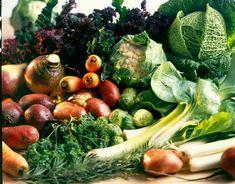
It is no secret that slowing market growth rates and rising consumer expectations are having an impact on organic fresh fruit and vegetable sales. The UK market showed negative growth last year, while most European countries reported low single-digit growth. In an attempt to push forward the many advantages that the organic movement brings, the sector has left consumers confused by the lack of one single message and organic fruit and vegetables have mostly been left on the shelf, with the industry unable to justify its high price point.
But specialist research and consulting company Organic Monitor research finds that positive growth is continuing at a global level, although it is far from the 15 per cent-plus growth rates observed in previous years. The global market for organic foods is undergoing a transition, with pioneers adopting sustainability initiatives. It is thought that the successful companies will be those who effectively communicate these sustainability values to consumers in the growing sea of eco-labels.
The economic slowdown has reduced consumer spending, but a change in consumer behaviour is making a positive impact. With growing interest in climate change, third world debt and ethical issues, consumers are demanding more from organic foods. They are looking at products that are ethically sourced, have low-carbon emissions, support indigenous communities and have low ecological footprints.
Consumer concern about climate change is leading some organic companies to offset their carbon emissions. Dutch organic produce company Eosta is a pioneer, with its range of climate-neutral organic products that includes oranges, apples, tomatoes and kiwifruit. Other companies are reducing their carbon footprints by using renewable energy sources and investing in forestation projects.
Another group of organic companies are adopting the Sustainability Flower navigator system. Developed by the Nature & More foundation, it enables the environmental and social dimensions of organic food products to be measured and communicated to consumers. The web-based system gives carbon, water, air and other environmental impacts of certified products.
However, with the launch of certified Fairtrade green beans into Marks & Spencer this month, all eyes are on the market in anticipation of Fairtrade vegetables becoming the next big thing for ethically aware consumers. It has been well documented that Fairtrade sales have been growing exponentially over the last five years - some would say at the expense of the somewhat ambiguously marketed organic movement. In the UK, the market for Fairtrade products was worth €920 million (£770.9m) in 2009, up from €250m in 2004. Most sales are from Fairtrade fruits and beverages, however vegetables could take a larger slice hereafter. It remains to be seen how this will impact on the organic vegetable market.
Within the organic produce market, the most popular vegetables are potatoes, carrots and tomatoes. In comparison, bananas account for the bulk of Fairtrade fruit and vegetable sales. M&S has introduced certified Fairtrade green beans from Kenya. The vegetables are sourced from a small group of 23 growers in Mweiga and Meru. The growers supply Homegrown Kenyan Ltd, a Fairtrade-certified plantation that sources from 10 areas located in the higher rainfall areas of Kenya.
Sainsbury’s, the UK’s largest retailer of Fairtrade products, is also planning to launch certified green beans in the coming weeks. Other leading UK retailers of Fairtrade foods such as Waitrose and The Co-operative are likely to follow suite.
In good news for the organic fruit and vegetable sector, a Conservative-led taskforce spearheaded by the new MP for Richmond Park, Zac Goldsmith, wants the government and public sector’s £2 billion annual food budget to be spent on produce that is organic, has been produced nearby and meets animal welfare standards.
The taskforce’s unpublished final report calls on the government to overhaul public sector food procurement to boost British agriculture, help the planet by reducing food miles, reduce dependence on an increasingly precarious international food supply chain and improve the quality of food. Its proposals would apply to all food produced by the NHS, local councils, schools, care homes and Whitehall departments, as well as prisons and the armed forces.



